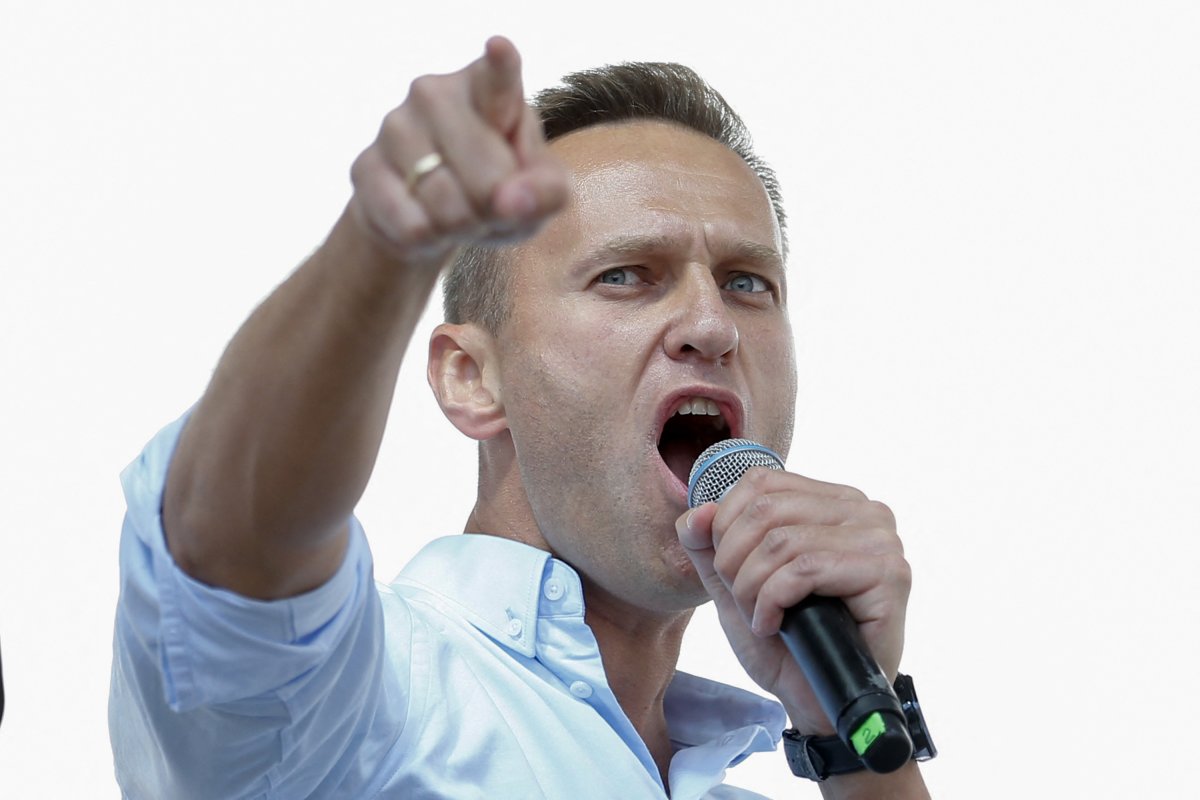The news of Alexei Navalny's death in a prison camp beyond the Arctic circle devastated me. Like countless other Russians, I believed that, someday, my native country would become happy and free. This vision of "the beautiful Russia of the future" was Alexei's invention, and, through his actions and charisma, he inspired many of us to adopt it as our own.
Over the past decade, I closely followed Navalny's journey. Long before, as a young journalist in Moscow, I decided I was too scared of Russian President Vladimir Putin's regime and switched from writing about social issues to covering arts and culture, a much safer subject. I knew I could never be a hero. It seemed that, at first, Alexei himself didn't know all that he was capable of. A lawyer, he created the Anti-Corruption Foundation, which conducted high-profile investigations of corruption schemes at the top levels of Russian government, but he became equally known as a prominent political figure. Unlike most other politicians in Russia, gray-suited men who struggle to appear human, he was handsome, funny, charming, and relatable. For me, he gradually became the single person whom I could see leading my country toward a better future.
In 2020, when he was poisoned with a military-grade nerve agent, Novichok, and fell into a coma, I checked for updates on his state daily, until he recovered in a German hospital nearly a month later. Instead of staying in Europe like many of his friends advised, Navalny decided to go back to Russia. Having long since moved to the United States myself, I found it impossible to sleep the night before his flight landed in Moscow's Sheremetyevo airport. It was clear he would be arrested immediately upon arrival because his organization had just released a YouTube film describing a $1.3 billion palace Putin had built for himself on the Black Sea coast. Over the next several weeks, "gold toilet brush" became a meme and shorthand for wasteful and tasteless luxury. As shown in the film, one of the minor stables on the estate boasted this type of accessory, which cost a mind-blowing 1,200 euros.

People across the political spectrum criticized Alexei's decision to return, deeming it foolish. I knew he returned because he was certain he must. In the documentary "Navalny" which was released last year and won an Oscar, he is quoted as saying, "How can I tell you not to be afraid if I myself am afraid?" He felt he would lose the right to speak out to his fellow Russians if he stayed sheltered in a safe location.
Alexei continued to be active in prison despite the state inventing new ways to torture him, including weeks of solitary confinement, starvation, denial of medical assistance, exposure to blinding light, sleep deprivation, and planting sick inmates in his cell. Throughout it all, he kept his signature sense of humor and optimism, describing his experiences in letters to his many correspondents, including his colleagues who then posted his texts on his various social media accounts. He came to embody courage and resilience, demonstrating that human dignity can transcend even the darkest of circumstances.
The morning I learned of his death, I cried as if I'd lost a close relative. A few hours later, I went to a protest in front of the Russian consulate in New York City, where several dozen people stood, chanting "Putin is a killer!" and "Russia will be free!" The latter didn't sound convincing, all of us probably wondering if it could ever be free. The next day, I dragged myself to a hackathon organized by independent Russian media in exile, where participants worked on instruments that could help resist propaganda. I felt I had to act, even if it was something small, even if it appeared futile.
That day and the day before, almost everyone I knew posted a video in their Instagram stories. It was an excerpt from the "Navalny" documentary, in which Alexei is asked what happens if he's killed in prison. He replies, "My message is simple. Don't give up. [...] We are a huge power. [...] All evil needs to win is for good people to do nothing."
Navalny has shown us that the desire to live in a free and peaceful country with a just government and an equitable distribution of wealth is a cause worth dying for. I don't know what the way forward can look like now, and this is a sentiment shared by everyone who was touched by his remarkable life. There is no one like him, and it seems that all is lost. His legacy, however, is tremendous, and the organization he founded, funded by donations, is continuing its work. The collective West must make Putin answer for killing Navalny. We can't afford to do nothing.
Svetlana Satchkova is a New York City-based writer and journalist. She is working on a novel set in present-day Russia.
The views expressed in this article are the writer's own.
Uncommon Knowledge
Newsweek is committed to challenging conventional wisdom and finding connections in the search for common ground.
Newsweek is committed to challenging conventional wisdom and finding connections in the search for common ground.
About the writer
To read how Newsweek uses AI as a newsroom tool, Click here.





